In today’s work world, full-time job agreements play a big role in how bosses and workers connect. These agreements are super important. They help everyone understand their jobs, duties, and what’s expected, all written in a special way that keeps things fair. These job papers not only protect workers’ rights, they also give bosses a clear plan to manage their teams.
Now, let’s step into this online space where we’ve gathered lots of helpful stuff – examples of job papers for full-time work. We’ve put together different kinds of templates for different situations. It’s like a well of information and power, designed to show you the way to clear and smooth job rules. Whether you’re working from home, doing a short-term job for a special project, or mixing office and remote work, our collection goes beyond just words on paper. These templates are like anchors, making sure work goes well for both bosses and workers, like a perfect teamwork tune.
Empower your employment journey with our collection of ready-to-use agreement templates. Download these MS Word formats for free and customize them to fit your needs seamlessly.
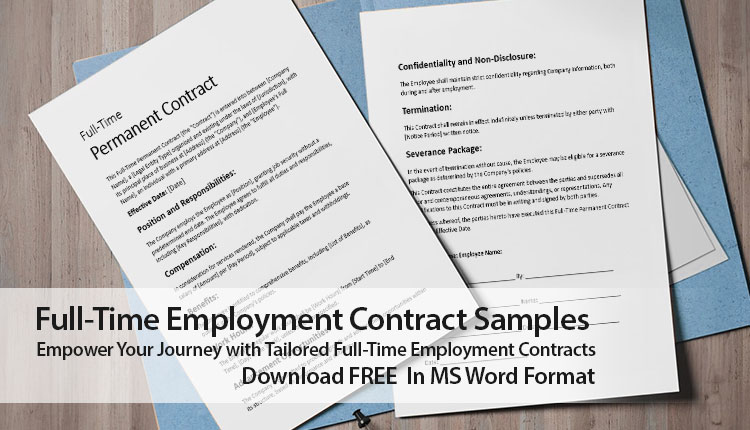
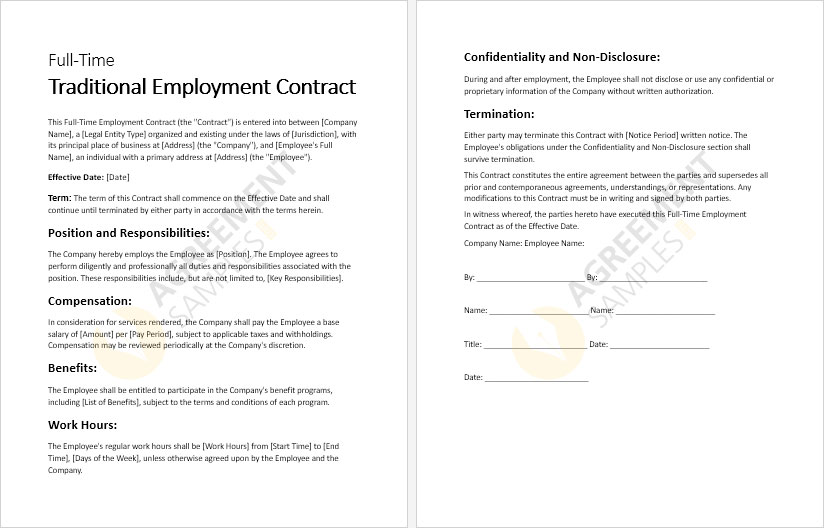
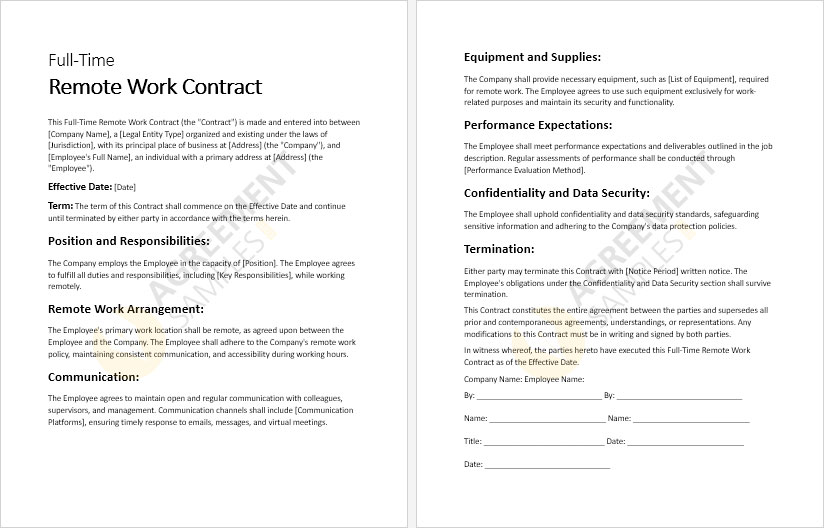
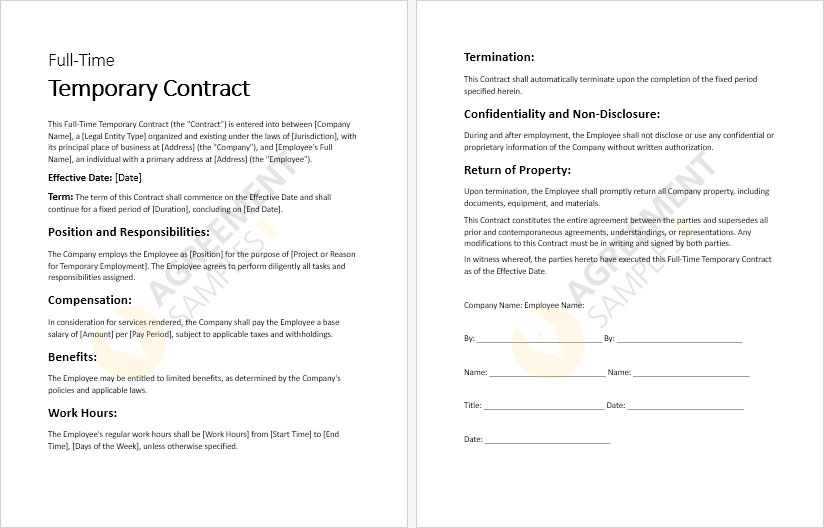
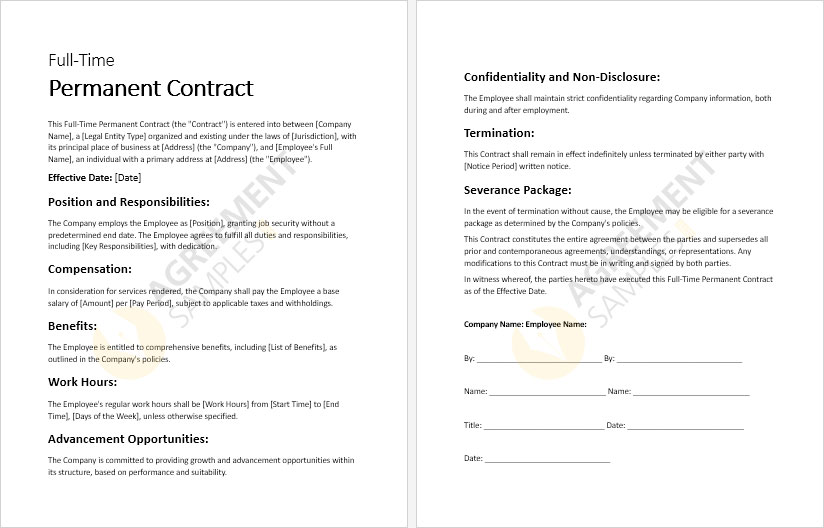
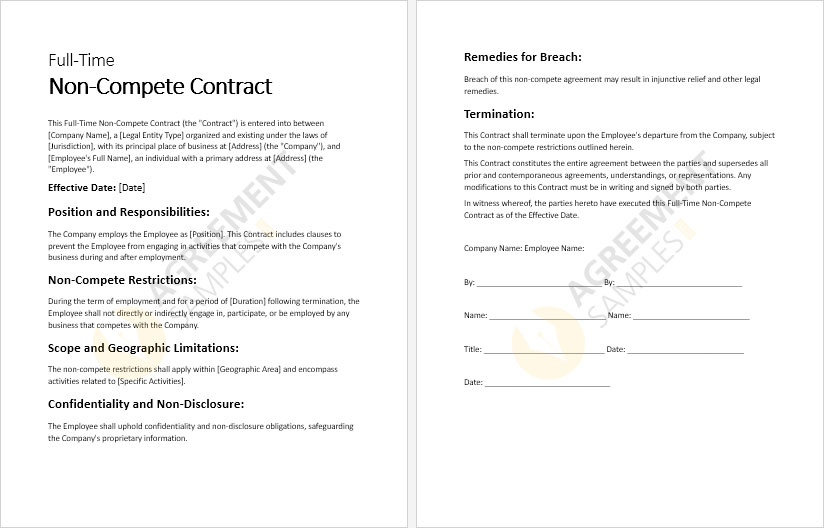
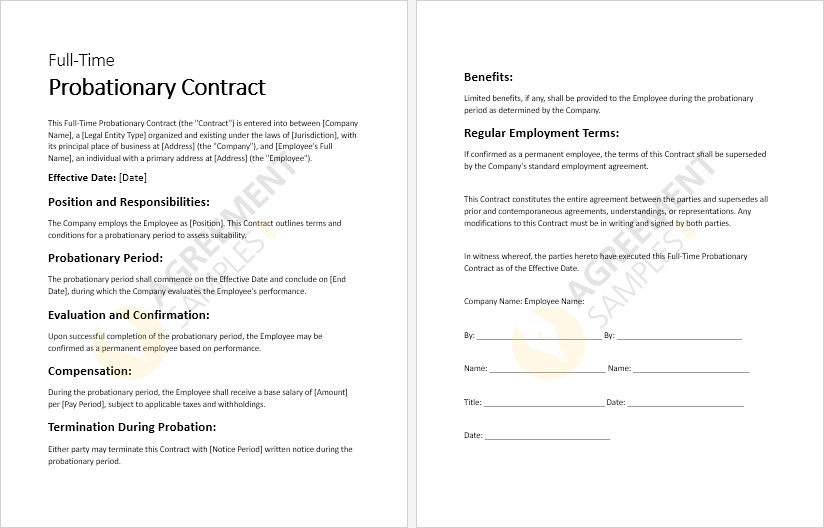
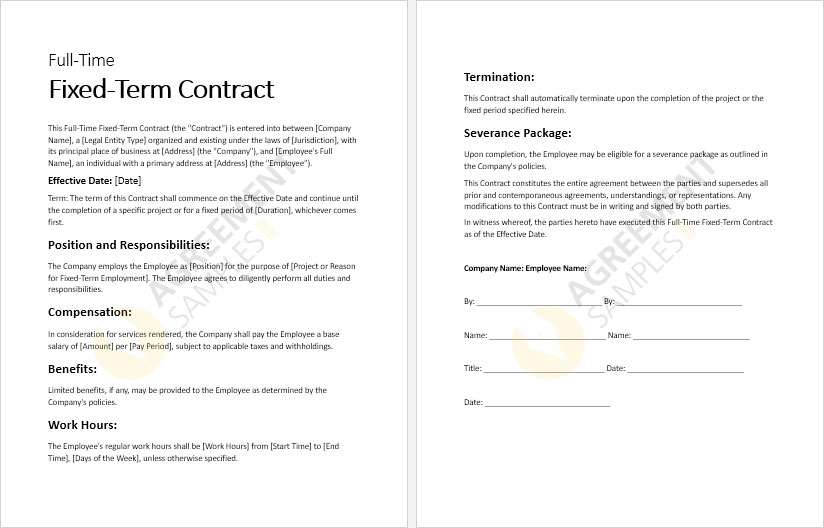
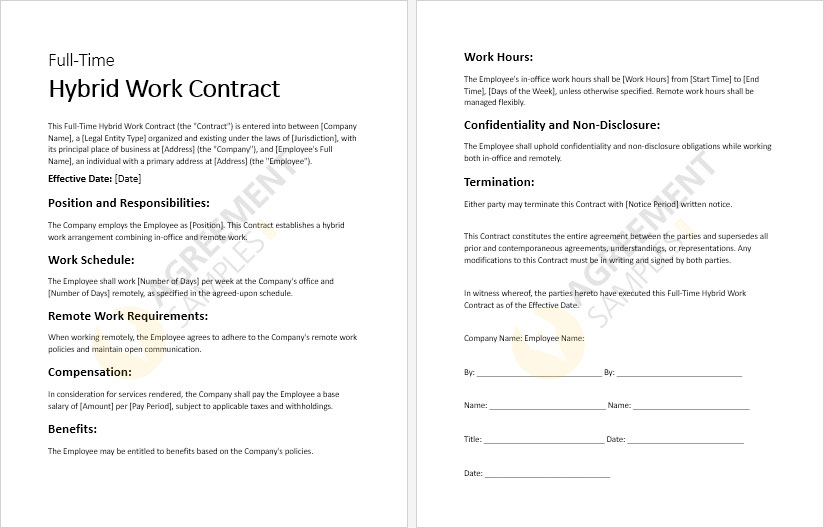
The traditional full-time contract is the classic, straightforward agreement. Here’s what it covers:
← Previous Article
6+ Free Two-Way NDA Samples to Protect Your IdeasNext Article →
10+ Free Residential Lease Templates You Can Use Today!